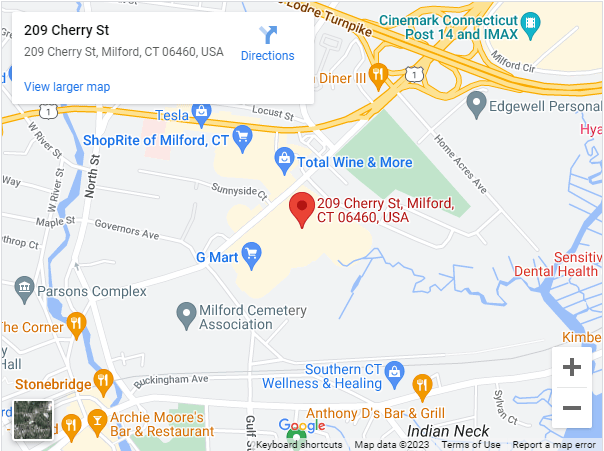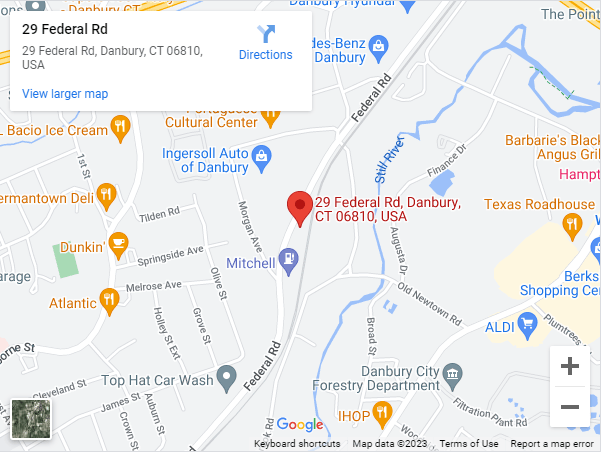Child Counseling Services
Is your Child Displaying Behavioral or Emotional Distress?
Navigate Emotions with Resilience, Confidence and Self-Respect
We assist young children, adolescents, and their families in managing emotional and behavioral challenges. With the help of a mental health expert, we can address your child's mental health needs.
We offer a full intake of your child's behavior, and provide family-focused therapy, individual counseling, cognitive behavioral therapy, art therapy and group therapy sessions. In addition, our counseling team provides day therapy for young children, case management help, therapeutic behavioral health treatments, and support to the child's primary caregivers and support person(s).
We strive to provide families and children, teenagers, and young adults with the skills they need to begin their therapy process by providing individualized counseling services.

KidSense Goals for Child Counseling and Mental Health Services:
We foster a strong sense of identity, rooted in honesty, respect, compassion, and self-responsibility
We work with the child to help them learn how to express emotions, increase their self-confidence, improve communication with family members, define their values and roles, and establish boundaries
We help children gain the skills needed for success at home, in school, and social situations
Mental Health Counseling for a Variety of Conditions
- Anxiety
- Depression
- ADHD
- Autism
- Academic concerns
- Behavioral issues
- Learning disabilities
- Self-esteem
- Social issues
- Sexualized behaviors
- Loss/Grief
- Adjustment related needs
- Weight issues
- Substance abuse
- Emotional and behavioral dysregulation
How do I Know if My Child Needs Counseling?
Your child may need counseling if experiencing one or more of the following:
Feeling of Sadness or Worry for an Extended Period
If a child appears particularly nervous, depressed, irritated, or cries often, such conditions might interfere with a child’s ability to accomplish everyday academic and social activities.
Changed Eating or Sleeping Habits and Increased Physical Complaints
Physical symptoms, such as headaches and stomachaches, can sometimes result from underlying mental health conditions in children. Similarly, if your child’s eating or sleeping habits have drastically changed, it could be an indication of an eating or sleeping disorder. After checking with a doctor, you might want to consult a therapist for help.
Regressing Behaviors
Regression is a process when a child temporarily goes back to a previous stage of development and acts according to that stage. It usually happens when they are greatly impacted by a traumatic event or crisis in their life such as losing a parent, a divorce between parents, or an accident. It can also be triggered by a change in routine or a transition. Some of the common symptoms of regression are bed wetting, disrespecting others, tantrums, and fear.
Unpredictable Behaviors
Unpredictable Behavior can be an indication of an underlying mental health condition. Such behaviors might be a child’s way to express depression, anger, or resentment. A therapist can help process emotions and improve a child’s ability to manage them across their day to day.
Self-Destructive Behaviors
If your child is frequently engaging in self-destructive behaviors like cutting themselves to cause pain, hitting, hurting, or mutilating themselves, using drugs or alcohol, it can be indicative that your child may need counseling.
Loneliness
Another sign of a mental health disorder could be loneliness or isolation from friends. If children are experiencing low self-esteem they might avoid the company of their peers. A therapist can help them to overcome such behaviors for improved mental health.
Why Choose KidSense for Counseling?
Rediscover Joy, Regain Mental Health and Restore your Resilience
- Highest Quality Treatment: We are committed to providing the highest-quality treatment and support which focuses on the unique needs of your child and family.
- Multidisciplinary Approach: Our diverse team consists of licensed clinical social workers, licensed professional counselors, and experts in occupational therapy, speech-language pathology, social work, and art therapy. We deliver each plan of care tailored to your child's needs and aim to provide a holistic integrated approach to supporting your child and family.
- Holistic Care: Adaptive games, arts and crafts, and interactive video and computer games improve participation in therapy while also providing peer-to-peer support to encourage children to take part in their care.
- High Success Rate: Our clients and their families routinely assess their care as excellent or very good.
What is Involved in the Evaluation?
Detailed Intake to Develop Individualized Treatment Plan and Provide Support
An initial mental health intake is a process by which a professional gains detailed information about a child's strengths and vulnerabilities to implement the most appropriate and adequate therapeutic techniques to target treatment goals.
At KidSense, a 45-60 minute initial assessment session with the child and parent/guardian is usually part of the intake procedure. During that session, a mental health professional will obtain information regarding developmental history, psychiatric history, familial history, academic background, and any other remarkable information. Following the intake, the clinician will discuss findings with the caregivers to design therapeutic goals.

What is Involved in Mental Health Counseling?
Increased Self-Esteem, Reduced Anxiety, and Improved Coping Mechanisms
- Art Therapy: The art therapist uses the art-making process and the resulting art product as an alternative means of communication. Art therapy is an integrative and expressive mental health service that allows children to explore internalized emotions and feelings through the use of active art-making, creative processing, and applied psychological theory and therapeutic interventions.The therapist and the client work together to understand this non-verbal communication. Clients can raise awareness of their own and others' behaviors, create problem-solving methods, and manage the symptoms, emotions, and experiences. They can also improve their cognitive abilities through creating art and reflecting on the art products and processes.
- Traditional Talk Therapy: Talk therapy requires our clients to discuss their thoughts, feelings, and behaviors with a skilled professional counselor. It can assist them in dealing with negative ideas and feelings while helping them progress in a positive direction. Describing their thoughts and how it makes them feel, assists them in identifying any patterns that need to be changed. It can help them in determining the source of their negative thoughts and ideas, as well as why they exist. This understanding leads to positive adjustments and better control over difficult environmental factors.
- Clinical Social Work and Licensed Professional Counselors: Clinical social work and licensed professional counseling are practices that focus on providing general counseling and crisis intervention for individuals, couples, families, and groups. Our clinical social workers and licensed professional counselors are licensed in the state of Connecticut to provide individual, group, and family therapy. They provide support to children and families to strengthen their relationships at home, school, and other social environments. Our licensed counselors also help children to develop tools to identify and express their emotions in healthy ways.
External Child Counseling Resources for Families, Parents and Caregivers
Resources do not supplement an evaluation and treatment plan created by a licensed therapist and should be used for informational purposes only.
State Education Resource Center (SERC)
https://ctserc.org/
Providing professional development and information dissemination in the latest research and best practices to educators, service providers, and families throughout the state, as well as job-embedded technical assistance and training within schools, programs, and districts.
US Dept. of Office for Civil Rights
https://www2.ed.gov/about/offices/list/ocr/index.html
OCR’s mission is to ensure equal access to education and to promote educational excellence through vigorous enforcement of civil rights in our nation’s schools.
Connecticut Family Support Network
https://ctfsn.org/
Exists to help families raising children with disabilities and special healthcare needs throughout the life span.
CT KASA
https://cpacinc.org/
Connecticut Parent Advocacy Center, Inc. (CPAC) is a statewide nonprofit organization that offers information and support to families of children with any disability or chronic illness, age birth through 26.
CT Fair Housing Center
https://www.ctfairhousing.org/
Since 1994, the Connecticut Fair Housing Center has provided free investigative and legal services to residents who believe they have been the victims of housing discrimination.
Disability Rights Education & Defense Fund
https://dredf.org/
To advance the civil and human rights of people with disabilities through legal advocacy, training, education, and public policy and legislative development.
Wrightslaw
https://www.wrightslaw.com/
Parents, advocates, educators, and attorneys come to Wrightslaw for accurate, up-to-date information about special education law and advocacy for children with disabilities.
Center for Excellence in Developmental Disabilities - UCEDD
https://uconnucedd.org/
Information and Resources for Persons with Disabilities, Families and Providers
Arc Connecticut
https://thearcct.org/
The Arc Connecticut is an advocacy organization committed to protecting the rights of people with intellectual and developmental disabilities(I/DD) and promoting opportunities for their full inclusion in their communities.
CT Parent Advocacy Center
https://cpacinc.org/
Parent Consultants provide individual training, support and empowerment for parents and professionals who reach out to us with questions about the education of their children and students. They provide training programs at no cost to families and educators across the state.
Favor
http://www.favor-ct.org/
We help families learn the skills to effectively self-advocate and to become family leaders who can mentor other families with similar needs in their communities.
State Department of Education
https://portal.ct.gov/SDE/Services/Special-Education
Information for special education leaders, school personnel, and families about special education.
Council of Parent Attorneys and Advocates, Inc.
https://www.copaa.org/
COPAA’s mission is to protect and enforce the legal and civil rights of students with disabilities and their families. Their primary goal is to secure high quality educational services and to promote excellence in advocacy.
U.S. Department of Education’s Individuals with Disabilities Education Act
https://sites.ed.gov/idea/
IDEA information and resources from the Department and grantees.
Frequently Asked Questions
How do I know if my child needs this service?
If your child has experienced a recent adjustment, traumatic event, or general emotional or behavioral difficulties lasting more than three months, this could be a sign that your child could benefit from mental health services.
What does your Evaluation Process look like?
Generally, the intake process consists of a 45-60 minute initial evaluation session with the child and parent/guardian. Within that session developmental history, psychiatric history, familial history, academic history, and related information surrounding primary concerns are gathered and discussed to formulate goals for treatment.
What’s your treatment approach for this service?
Treatment approaches will vary depending on the need. Some interventions incorporated into outpatient therapy by our licensed counselors consist of the following: Play-based therapy, Art-Based Therapy, Traditional Talk Therapy, motivational interviewing techniques, and Cognitive Behavioral therapy.
Which collaborative therapy treatments do you offer in conjunction with these services?
Our mental health clinicians at KidSense can collaborate with additional professionals, once given consent, (i.e. OT, speech, teachers, behavioral health providers, pediatricians, etc.) to support a holistic approach for promoting effective continuity of care.
What is Art Therapy?
Art therapy is an integrative and expressive mental health service that allows children to explore internalized emotions and feelings through the use of active art-making, creative processing, and applied psychological theory and therapeutic interventions.







